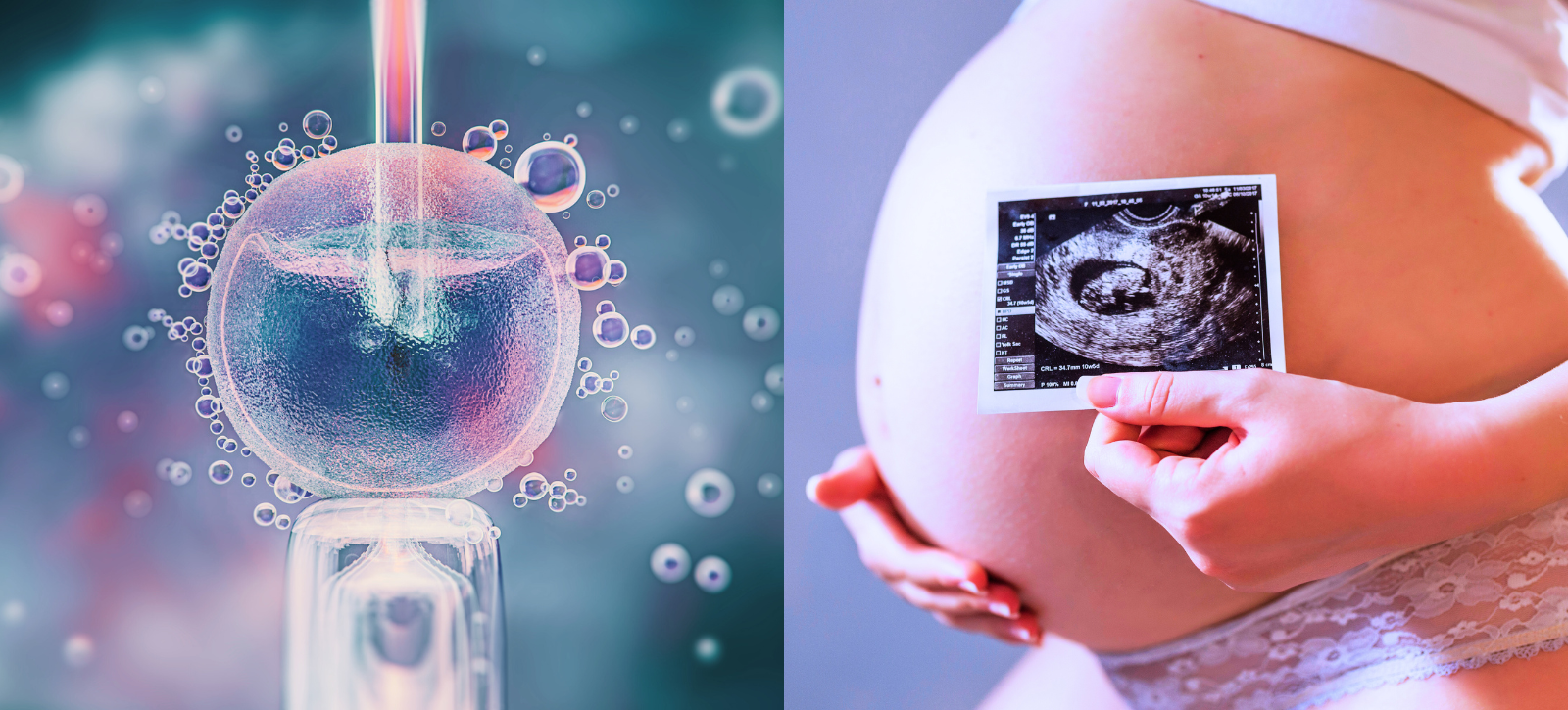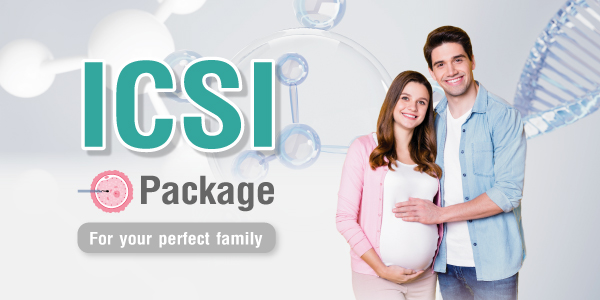Infertility: ICSI treatment
What is Infertility?
Infertility is the inability to conceive after one year of regular, unprotected intercourse. It affects both men and women and can result from various physiological, genetic, lifestyle, or environmental factors. Infertility can be classified as primary (when a couple has never conceived) or secondary (when they have conceived before but are unable to do so again).
Causes of Infertility
Causes of Female Infertility
- Ovulatory Disorders: Conditions such as polycystic ovary syndrome (PCOS), thyroid disorders, and premature ovarian failure can disrupt ovulation.
- Blocked Fallopian Tubes: This can be due to infections, endometriosis, or previous surgeries.
- Uterine Abnormalities: Fibroids, polyps, or congenital uterine malformations may prevent implantation or lead to recurrent miscarriages.
- Endometriosis: The presence of endometrial tissue outside the uterus can affect the reproductive organs.
- Age Factor: Female fertility declines significantly after the age of 35 due to decreased egg quantity and quality.
- Hormonal Imbalances: Abnormal levels of hormones such as estrogen, progesterone, or prolactin can interfere with conception.
- Lifestyle Factors: Smoking, excessive alcohol consumption, obesity, and stress can negatively impact fertility.
Causes of Male Infertility
- Low Sperm Count (Oligospermia): A low number of sperm in the semen can reduce the chances of fertilization.
- Poor Sperm Motility (Asthenozoospermia): Reduced sperm movement makes it difficult to reach and fertilize the egg.
- Abnormal Sperm Morphology: Misshapen sperm may be unable to penetrate the egg.
- Erectile Dysfunction or Ejaculatory Disorders: These can be caused by psychological, neurological, or vascular problems.
- Varicocele: Enlarged veins in the testicles can lead to poor sperm production and quality.
- Infections: Sexually transmitted infections (STIs) or other infections can cause inflammation and block sperm passage.
- Hormonal Imbalances: Low testosterone or imbalances in FSH and LH hormones can affect sperm production.
- Lifestyle Factors: Smoking, excessive alcohol intake, drug use, and exposure to toxins can lower sperm quality.
At BPK9 Fertility Center. Bringing new life into the world is a journey filled with hope, anticipation, and, at times, unexpected challenges. As a dedicated fertility specialist, Dr. Thanik Chokjirawat is honored to walk alongside individuals and couples on their path to parenthood. With a deep understanding of reproductive medicine and a compassionate approach, He combines cutting-edge science with personalized care to help dreams of families become reality. Whether addressing infertility concerns, exploring advanced treatment options, or providing heartfelt support, He is committed to empowering patients with knowledge, guidance, and unwavering encouragement every step of the way.
Treatments for Infertility
Treatment for Female Infertility
- Medications: Clomiphene citrate, letrozole, gonadotropins, and other hormonal treatments can help regulate ovulation.
- Surgery: Procedures to remove fibroids, polyps, or blockages in the fallopian tubes.
- Assisted Reproductive Technology (ART): Includes intrauterine insemination (IUI), in vitro fertilization (IVF), and intracytoplasmic sperm injection (ICSI).
- Lifestyle Modifications: Maintaining a healthy weight, reducing stress, and adopting a balanced diet can improve fertility.
- Hormonal Therapy: Addressing thyroid disorders, PCOS, or other hormonal imbalances.
Treatment for Male Infertility
- Medications: Hormonal therapy can help balance testosterone and other reproductive hormones.
- Surgical Treatments: Varicocele repair, vasectomy reversal, or sperm retrieval techniques.
- Lifestyle Changes: Reducing alcohol and tobacco use, exercising, and maintaining a healthy diet can enhance sperm quality.
- Sperm Retrieval Techniques: In cases of low sperm count, sperm can be retrieved directly from the testicles for use in ART.
- ART Procedures: IUI, IVF, and ICSI can help overcome male fertility issues.

ICSI: A Primary Choice for Infertility Treatment
What is ICSI?
Intracytoplasmic Sperm Injection (ICSI) is an advanced assisted reproductive technology (ART) technique used primarily in cases of severe male infertility or unexplained infertility. Unlike conventional in vitro fertilization (IVF), where sperm and egg are combined in a petri dish for fertilization to occur naturally, ICSI involves the direct injection of a single, carefully selected sperm into an egg using a specialized microneedle. This process significantly enhances the chances of successful fertilization, particularly for couples who have experienced failed IVF cycles or have sperm quality issues.
Who Needs ICSI?
ICSI is recommended for couples facing:
- Severe male infertility, including low sperm count, poor motility, or abnormal sperm morphology.
- Azoospermia (absence of sperm in semen) requiring surgical sperm retrieval.
- Unexplained infertility where traditional IVF has not resulted in fertilization.
- Previous failed fertilization in standard IVF cycles.
- Couples opting for preimplantation genetic testing (PGT) to screen embryos for genetic abnormalities.
The ICSI Process
- Ovarian Stimulation: The female partner undergoes hormonal treatments to stimulate the ovaries to produce multiple eggs.
- Egg Retrieval: Eggs are collected from the ovaries using a minimally invasive procedure.
- Sperm Collection and Preparation: Sperm is obtained from the male partner either through ejaculation or surgical extraction if necessary.
- Microinjection: A single, high-quality sperm is injected into each retrieved egg using a microscope and a specialized microneedle.
- Embryo Development: Fertilized eggs (embryos) are monitored for several days to ensure healthy growth.
- Embryo Transfer: The most viable embryo is transferred into the woman's uterus for implantation and pregnancy.
- Pregnancy Testing: A blood test is conducted two weeks later to confirm pregnancy.
Advantages of ICSI
- Higher Fertilization Rate: Increases the chances of fertilization, especially for male factor infertility.
- Overcomes Sperm-Related Issues: Helps men with low sperm count or motility father biological children.
- Improves Success for Previous IVF Failures: Can help couples who have had failed conventional IVF attempts.
- Viable Option for Genetic Testing: Allows for preimplantation genetic screening to reduce the risk of genetic disorders.
ICSI has revolutionized fertility treatments and provides hope for many couples struggling with infertility. If you are experiencing fertility issues, consulting a specialist about ICSI as a treatment option may be beneficial.

